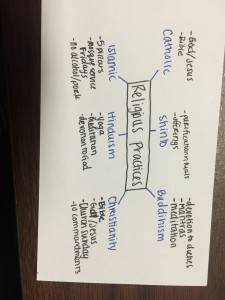If I could turn back time I would offer some good advice that I learned while reading these articles. I would first start by telling Turkey, Iraq, and Syria that by cutting water and resources off from one another, will not solve anything at all. Some good advice for them would be better management. From reading these articles it seemed as though they were to busy fighting with one another over water that they just kept making the situation worse. Stop, think, and manage would have been a lot more useful during these tough times. Management will do wonder when you actually sit down and analyze a situation and take action on it. They could have also tried recycling their water, which by doing that it would also take management. By recycling their water they would not have had the conflict of sucking their aquifers dry. Aquifers are non replenish able, that seems very scary. Although with proper action this issue could be reduced.
I do think that leaders would view my suggestions of better management, and recycling worth implementing. Its amazing at how much easier and rational things can be when everyone quits fighting and puts their heads together, I understand this was a time of war but they did more than just kill people, they killed their water supply at their own fault.
Some pieces of information that I would need that I did not get while reading these articles would be their global warming and climate conditions during this time. Today this type of information comes in very handy when deciding how they will manage their water. Also things such as rainfall are very important to know. What were their water laws? who made the decisions and why? Did they have any actual knowledge of the system or were they just born into the position?
